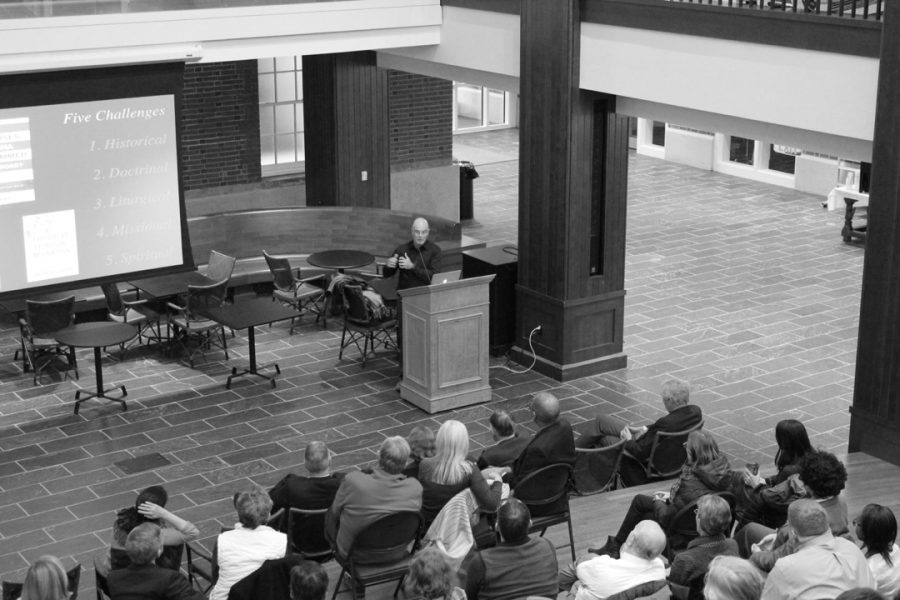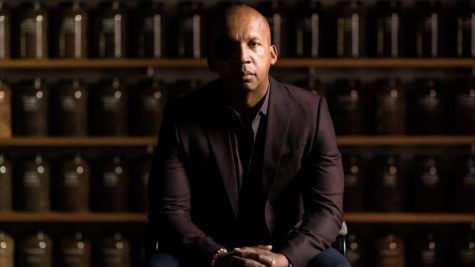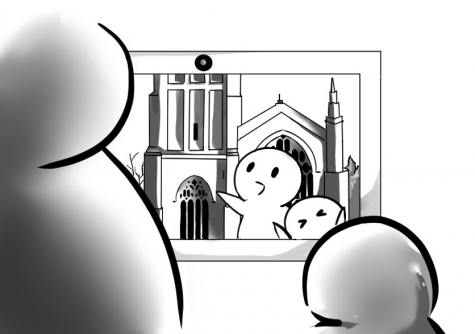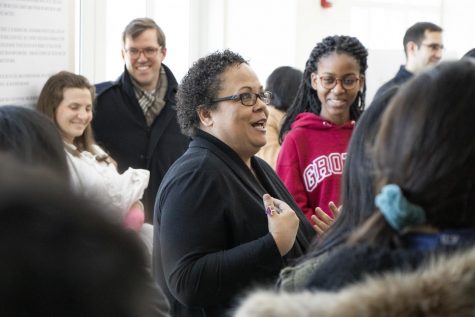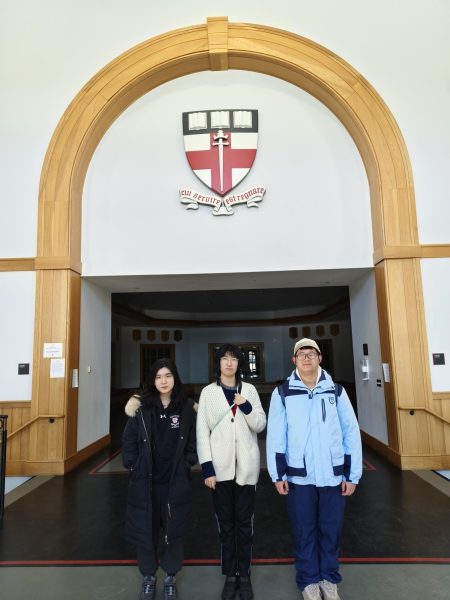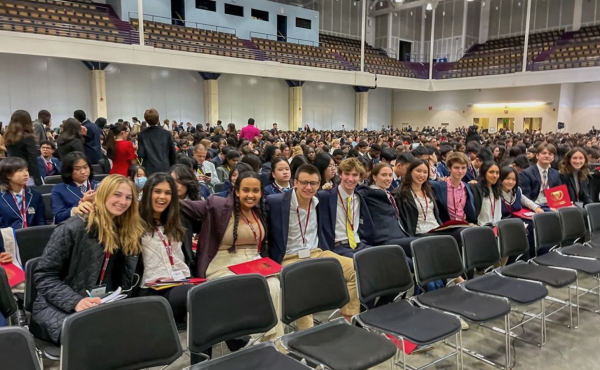Trinity and tradition: Pyne speaker visits Circle
Every year, Groton hosts a Percy and Eben Pyne Speaker, a tradition that started in 1999 in order to bring guest speakers to Groton who exemplify moral courage, concern for humanity, and living conscience. The lecture is named after Percy R. Pyne and Eben W. Pyne, who were both graduates of Groton and served as leaders in their forms.
This year, the speaker was Christian pastor, theologian, and author of multiple books Brian McLaren. He was named one of the 25 Most Influential Evangelicals in 2005 by Time Magazine, and he has strived through his career to break down the divisions that characterize modern Christianity. He spoke on December 4th at the Morning Chapel service and again later in the Sackett Forum; he also delivered a chapel talk the following day.
In his lecture, “Why did Jesus, Moses, the Buddha, and Mohammed Cross the Road: Religious Identity in a Multi-Faith World”, Mr. McLaren suggested a positive path for Christians that would enable them to form a religious identity that is both strong and kind at the same time. He also discussed what it means for an individual to hold strong religious conviction while living in a world of diverse faiths.
Mr. McLaren began by talking about how he reached out to Muslim mosques in his neighborhood after the incident on September 11th, 2001. He visited the mosques and told all the Muslims who were feeling scared and threatened that he and his church would always be there for them and offered them help whenever they needed it. He has been criticized for this stance over the years, but nevertheless he did not stop since he genuinely wanted to help people. He hopes that everyone can become generous and work for the common good regardless of your faith.
Mr. McLaren supports a new kind of Christianity, one that is able to harmonize and coexist with other religions and is rooted in practicing the teachings of Christ rather than engaging in various conflicts, whether they be political or cultural. He explained the challenges that our world faces in the domains of prosperity, equity, security, and spirituality. He pointed out that if you have a strong religious identity, then you are hostile to people of other faiths, and that the only way people are able to accept other religions is if they are not involved deeply in a religion themselves.
To solve this, Mr. McLaren proposed paths Christians could take while being a benevolent person and maintaining a strong religious identity at the same time. He mentioned four large sections: The Crises of Christian Identity, The Doctrinal Challenge, The Liturgical Challenge, and The Missional Challenge. To sum it up, he believes that you must not loosen your faith in Christ, but engage more deeply in old practices of the church.
In his chapel talk on Monday morning, Mr. McLaren shared a personal anecdote that served as the inspiration for his ideas and beliefs. The story was about when he was in high school, around the age of Groton students, and attended a camp where he snuck out with his friends to watch the night sky and the stars. Looking at the scenery and listening to his friends tell each other compassionate and caring things made him feel various emotions, including one of sincere love. At that moment, everything in the universe made him feel loved, and he realized that every inch of the universe should be loved as well. After this experience, he realized what he wanted to do. He is a strong advocate of a cooperative world of religion and believes that everyone has the right to be loved and understood.


